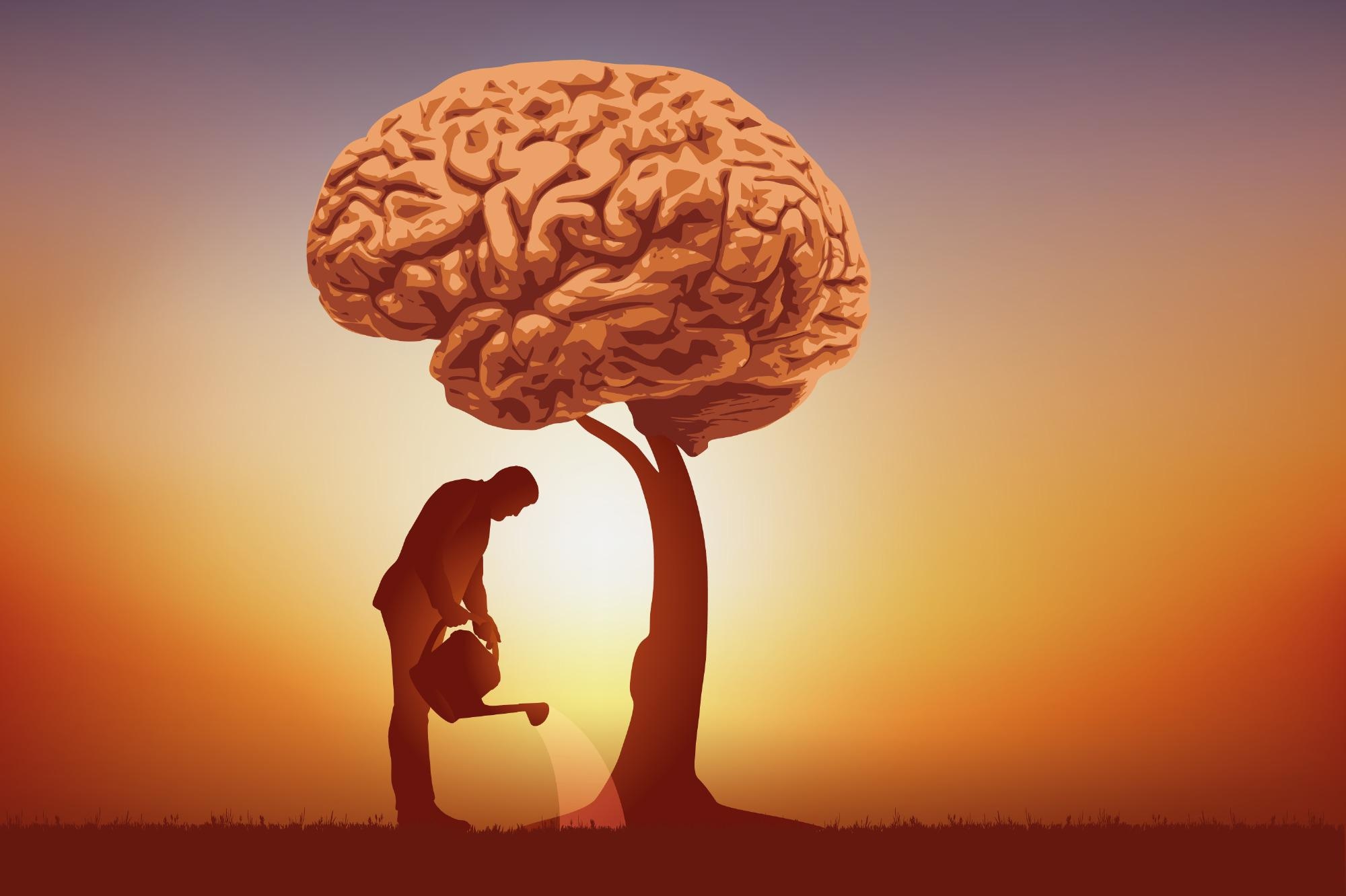I was born and raised in India where I went to medical school. Like most Eastern cultures, in India, it is thought that older people are wiser, and that wisdom is a real thing. However, I did not think much of it until decades later, when as a geriatric psychiatrist I started studying older people. I found out that, contrary to expectation, as people get older they seem to get happier.
Although their physical health is declining, people become more contented. And I wondered, what does that mean? Does that mean they are actually becoming wiser, and if so, what is wisdom? As a geriatric psychiatrist and neuroscientist, I thought it was an important thing to study because wisdom is an ancient concept in most religions and philosophies.
Empirical research on wisdom only started in the 1970s at Max Planck Institute in Berlin and at the University of Southern California in Los Angeles. It has been growing since then. I thought that as a geriatric psychiatrist and neuroscientist, it was important for me to study what wisdom is. That is how I actually got into wisdom research.

Wisdom. Image Credit: intueri/Shutterstock.com
I found out that, contrary to expectation, as people get older they seem to get happier."
What is meant by the term wisdom and how does this differ from the term intelligence?
Wisdom is a personality trait. It is a personality trait like resilience, optimism, neuroticism or extroversion. This means it describes a characteristic pattern of behavior in a person, but it is different from other traits in that it has multiple components. It differs from intelligence in the sense that although it requires some basic intelligence, it is much more than intelligence.
The biggest components that I will describe to you are not a part of intelligence. Also, intelligence usually does not increase much with aging. IQ remains pretty stable through most of life. Wisdom on the other hand is potentially modifiable - it can increase. Further, intelligence is useful for some things, but it is not necessarily useful for others because, for example, mass murderers are often very intelligent people: they do not lack intelligence, what they lack is wisdom.
Previous research has shown that wisdom is comprised of seven components. Please can you tell us more about the seven components of wisdom?
There are seven components. The most important single component is what is called prosocial behavior. That is the things that we do for other people rather than things that we do for ourselves selfishly. So, this includes empathy and compassion. Empathy means understanding and sharing somebody else's emotions or thoughts. Compassion means acting on it and helping somebody else. You cannot be wise unless you have more than enough empathy and compassion.
The second component, also important, is emotional regulation - control over your emotions. Think about a teenager, whose emotions fluctuate hour to hour, minute to minute, and think about a wise older person who is calm, collected, not ruffled easily, and takes things in stride. That is control over emotions or emotional regulation.
The third important component is self-reflection - the ability to look inwards and understand our own behavior, thinking, and feeling. Typically, when something goes wrong, we blame other people, or we blame something else. If you have self-reflection you will think ‘did I do something wrong that caused a problem and how can I do better?’ It means understanding one's own strengths and limitations.
These are the three most important components: empathy and compassion, emotional regulation, and self-reflection; but there are also others that are involved. One is accepting uncertainty and diversity of perspectives.
So, I may have strong values about something, whether it is my philosophy, politics, religion, whatever it may be, but I should accept the fact that I could be wrong and that people who think differently from me may have a reason to think along that line. It does not mean that one of us is either evil or dumb. People can have rational differences of opinion. We need to accept uncertainty and diversity of perspectives.
The next one is decisiveness. Although we accept uncertainty, we have to be decisive when needed. Decisiveness does not necessarily mean making a quick decision, it depends on what kind of decision is needed. Some decisions have to be made right away. For example, if somebody is seriously sick, you need to do something right away. But many decisions can be delayed and given good thought to come to a rational conclusion. Decisiveness means rational thinking to come to a decision.
Next is social advising - the advice that we give to other people. If a wise person keeps things to herself or himself, that is not benefiting society. To be wise, you give advice that is not in your selfish interest, where you do not have a conflict of interest.
The last one is somewhat controversial: spirituality. Spirituality is different from religiosity. Atheists can still be spiritual. Spirituality means feeling constantly connected with something or someone that we do not see, hear or feel. People can call it spirit, soul, consciousness, God. There are some people who do not believe that spirituality should be a component of wisdom and some who do.
Those are the seven components of wisdom.

Helping others. Image Credit: KieferPix/Shutterstock.com
Do you foresee wisdom measures becoming more frequently used due to the increase in mental health research in recent years?
I do hope that there is more research on wisdom and more people studying it in more depth in the future. Why? Because wisdom is not only useful for the individual, it is also useful for society.
A number of studies have shown that wisdom is associated with more happiness, more contentedness, and greater compassion and empathy for others. It is useful not only to yourself but to your family, to your community, to your group, and to society as a whole.
Wisdom means not just focusing on how much money I have, but also how I can be a useful member of society and how we can help others. Humans need wisdom; the words homo sapiens actually means ‘wise man’.
Wisdom has to include this social connectedness. That is why it is useful and that is why there should be more research on wisdom: because it is useful for individuals, but also for society as a whole.
Wisdom means not just focusing on how much money I have, but also how I can be a useful member of society and how we can help others."
You previously developed the 28-item San Diego Wisdom Scale, SD-WISE-28, to help determine a person's level of wisdom. Why did you choose to shorten your scale?
We need to be able to study personality traits using a standardized, reliable, and valid rating scale. It is hard to measure wisdom objectively and that is also true for other personality traits like resilience, optimism, neuroticism, and extroversion.
Typically, the personality scales include a bunch of statements about behavior. You say to what extent you agree or disagree with that statement when it applies to you. I developed the scale with my colleague Michael Thomas, a psychologist and expert in scale development. Michael was at UC San Diego before, but now he is at Colorado State University and we collaborate.
We jointly developed the San Diego Wisdom Scale or Jeste-Thomas Wisdom Index. The original scale had 28 items, four items for each of the seven components.
The items are things like: "I have toruble thinking clearly when I am upset". That means when I am upset, my emotions take over, I have no control over them and I cannot do anything rationally. It is the opposite of emotional regulation. Some items are negatively worded like this. Some are positively worded, for example, you can say that "I treat others the way I want to be treated".
We have 28 items, four for each of the components of wisdom. There are some other scales for wisdom too, that have been in the literature and that have been used, but we wanted to develop a scale that was based on our definition, including these seven items and there is no other scale like that. As a neuroscientist, I had looked at the brain basis for these traits. We published a paper on the neurobiology of wisdom, looking at the areas of the brain that were involved and the prefrontal cortex and limbic Striatum.
Our scale is unique in that it is based around these seven components and has a potential biological basis in the brain. It is a good way to measure wisdom, although there is no perfect way of measuring anything because these qualities are subjective. You ask people to what extent they agree or disagree. It is possible that people lie, but usually, this does not happen in research because the data are anonymous. It is not like I am applying for a job and I have to describe myself: then I would say, ‘oh, I am the most compassionate person in the world’.
That is why, typically, you get pretty reliable and valid ratings from people, even though they are based on self-report. Then there are some psychometry properties like reliability and validity that have to be met for a scale to be published.
Can you describe how you designed your seven-item scale for wisdom and how you tested it? What did you discover when testing it?
We somewhat randomly selected large samples of people in the Diego community. They were selected using random digit dialing, ranging in age from 20 to 100+ across the adult lifespan. We gave them a number of items of wisdom that we had in mind, starting with a large number of items and then narrowing them down to 28.
In addition to these items, we also gave two other scales of wisdom that have been published and validated. As I said, wisdom is associated with better mental health, more resilience, and more happiness. We also use scales for resilience, happiness, and optimism, as well as physical health, mental health, cognitive function, and negative things like loneliness, depression, anxiety.
The expectation is that a valid scale of wisdom will be positively associated with happiness, optimism, and resilience, and negatively associated with depression, anxiety, loneliness.
That is what we found with our scale. It met the criteria for validity that we had and correlated with the other wisdom scale that had been published. It was not identical because it was based on different conceptualizations of wisdom, but all in all, we found it was quite reliable and we had a large sample in which we could test this and show that it worked.
How accurate is your seven-item scale in determining a person's level of wisdom? How could your wisdom scale potentially help us to further understand mental and cognitive health?
In terms of accuracy, there are no objective measures of wisdom because what we are measuring is a pattern of a person's behavior over their lifetime or at least over a number of years. There is no way to characterize that fully unless we videotape somebody 24/7, which has its own problems.
Somebody may say, how about asking other people how the person behaves? There is a different kind of bias here. If I like somebody, I will rate that person highly. If I do not like that person, I will give a low rating.
These personality scales are reasonably reliable, valid, and accurate. Nothing is hundred percent accurate, but they are significantly accurate based on the statistics used so long as you have a large sample size. The SD-WISE scale has been translated into several languages and we have used it in different populations. It looks like it is an accurate, valid, and reliable scale.
In terms of understanding mental and cognitive health, there are other measures of mental and cognitive health that must be used because they are not measuring the same thing. However, they correlate with each other and that is the important thing.
Wisdom study is important because wisdom is potentially modifiable. You can increase somebody's wisdom and you can decrease somebody's wisdom. There have been studies showing that people who have brain trauma in specific regions, or patients who have certain kinds of disease like frontotemporal dementia, can change in this respect.
Those people who were wise before, that is they had more empathy, compassion, self-reflection, and emotional regulation can become unwise after that trauma or disease. But on the other hand, wisdom can be increased with psychosocial behavioral intervention. We published a paper on a meta-analysis of randomized controlled trials to increase components of wisdom like empathy, compassion, emotional regulation, and spirituality.
To increase wisdom, we need to find out how wise a person is, whether the person needs help, and in what areas they need help. Once we know that, we can use intervention appropriately. That is why studying wisdom is important.
Wisdom study is important because wisdom is potentially modifiable. You can increase somebody's wisdom and you can decrease somebody's wisdom. "
Do you believe that with continued research into wisdom we will continue to see more factors that are associated with higher levels of wisdom?
I certainly hope so. We really need more research on wisdom because research in wisdom is only in the relatively early stages. We need broad-based multidisciplinary research including not only psychologists, philosophers, and ethicists but also neuroscientists, physicians, social workers, nurses, people who do brain imaging research, neurobiology research.
We really need these different groups to do joint research, then we will understand wisdom better.
What are the next steps for you and your research into wisdom?
We are looking at several different things, and one is to understand the biology of wisdom more. We are beginning to do some brain imaging studies, something called functional MRI or functional magnetic resonance imaging. You ask a person to do a certain thing when they are in the magnet, for example, you tell them to think about something or feel a certain way by looking at a picture.
Then you measure the blood flow in the brain or activation of different areas. That is how you can see how wise people differ from unwise people, or compassionate versus non-compassionate, emotionally regulated versus non-emotionally regulated, etc.
That is what will help us understand the brain better because once we know the basics of the brain, we can increase our interventions to biological interventions. For example, if we know that some part of the brain is critical for wisdom, then maybe if we stimulate that part the wisdom will grow.
Right now, we are not there because neuroscience is still growing. But in the near future, I think that will be possible. We need to understand the underlying neurobiology, which will provide more tools for us for promoting wisdom.

Loneliness. Image Credit: fizkes/Shutterstock.com
Is there anything else you wanted to mention at all or anything else you wanted to include?
One thing I want to mention is that one of the most consistent findings we have had is that wisdom, especially the compassion portion, and loneliness go in opposite directions. People who score high on wisdom are not lonely and vice versa. We found that in several cross-section studies and even in a longitudinal study. When people were followed longitudinally, those who had high levels of compassion and wisdom at baseline were much less likely to be lonely five to six years later.
Loneliness is bad for health. It is associated with diabetes, obesity, heart disease, depression, dementia, and increased mortality to a significant extent. I know in the UK there is a Ministry of Loneliness. It is a major public health issue and we need to find solutions for that.
There are no good solutions at this time, but we are working on developing an intervention that will increase compassion and other components of wisdom to reduce loneliness because that will be a direct contribution to improve not just mental but also physical health and potentially longevity. We feel that this is an exciting new area to work on.
About Professor Dilip V. Jeste
Dilip V. Jeste, M.D. is the Senior Associate Dean for Healthy Aging and Senior Care, Estelle and Edgar Levi Memorial Chair in Aging, Director of the Sam and Rose Stein Institute for Research on Aging, Distinguished Professor of Psychiatry and Neurosciences at University of California San Diego, and Co-Director of the UC San Diego-IBM Center on Artificial Intelligence for Healthy Living. His main areas of research include schizophrenia, neuropsychiatric interventions, and successful aging..jpg)
He has published 14 books, including his most recent book titled “Wiser” in which he describes evidence-based findings on definition, measurement, and neurobiology of wisdom as well as its relationship with aging and interventions to promote wisdom. Dr. Jeste has published over 750+ articles in peer-reviewed journals and 160+ invited book chapters. He is Past President of the American Psychiatric Association, American Association for Geriatric Psychiatry, the West Coast College of Biological Psychiatry, and Founding President of International College of Geriatric Psychoneuropharmacology.
Dr. Jeste is a member of the National Academy of Medicine. He is Past Editor-in-Chief of The American Journal of Geriatric Psychiatry and currently Editor-in-Chief of International Psychogeriatrics. He was listed in “The Best Doctors in America” and the Institute of Scientific Information list of the “world's most cited authors” comprising fewer than 0.5% percent of all publishing researchers of the previous two decades.